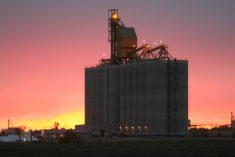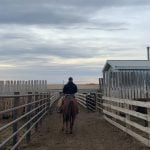STAFF – The debate flared up again at the Alberta Barley Commission meeting: Is it ‘hulless’ or ‘hull-less?’
“I thought we had this settled,” said retiring commission chair Tim Harvie, with a bemused expression after seeing the term ‘hull-less’ in data provided by University of Saskatchewan barley researcher Ron Bhatty.
“I thought everyone used ‘hulless’ now.”
Bhatty said some academic researchers still use ‘hull-less,’ even though ‘hulless’ has become common among farmers and the grain trade.
“There is no agreement about one or the other,” said Bhatty, who personally prefers ‘hulless.’
Read Also

Port’s project list omission decried
Grain farmers weren’t necessarily expecting the port of Vancouver to be on the list of recently-announced major projects, but had hoped for at least a mention.
“To me, the third ‘L’ is not really needed,” he added, with the detached analytical tone of the academic. “If you can do it with two ‘Ls,’ why do it with one more?”
Follow the rule
For a very good reason, perhaps, says Regina English teacher and word sleuth Pamela Bocking: Fear of the spirit of H.W. Fowler.
The Webster’s Third New International Dictionary (1971) contains both ‘hull-less’ and ‘hulless’ as acceptable words for barley that doesn’t have hulls. But the American dictionary’s acceptance of the latter word flies in the face of the principles of hyphenation and compounding laid out in Fowler’s Modern English Useage (1906, revised 1965).
“A hyphen should not be used unless one is necessary to sort out the three ‘Ls’ in those rare words in which ‘-less’ has been appended to a word ending in ‘LL,'” commands Fowler, in the book Bocking says is “like the Bible of the English language.”
The word ‘hulless’ may be a pragmatic modification of the three ‘Ls’ word, and acceptable to American dictionary writers, but Fowler is clearly not a man to brook tampering with the sanctity of English.
His venomous disdain and contempt for those who twist the language to suit their own needs is obvious in a passage addressed “to those who have any regard for the interests of the language as distinguished from its pliability to their immediate purposes.”
Bocking said words that carry this amount of confusion or controversy are often abandoned for clearer terms. With barley this could be “non-hulled” or “hull-free.”
Yet hulless seems to have settled in for good. The word appears throughout seed guides and barley association literature, and farmers commonly use it.














